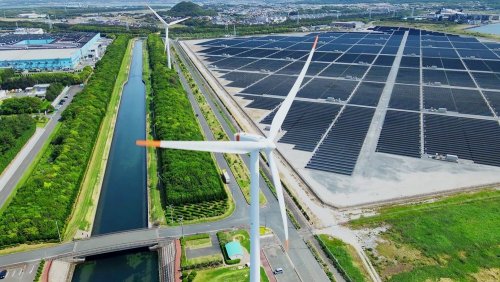countries G-20 plan to triple renewable energy capacity by 2030 and have offered support for technologies that can support the use of fossil fuels.
Such a proposal eased concerns from Russia and Saudi Arabia, one of the world's largest exporters of fossil fuels, which had previously stalled the deal, reports Bloomberg.
According to people familiar with the negotiations, the members G-20 will commit to support and encourage efforts to increase green energy production. In addition, the G20 will also call for a boost in the deployment of emission reduction technologies, including carbon capture. This can reduce emissions from the use of gas, coal and oil.
It is noted that such a result of the negotiations gives a new impetus to the energy transition. After all, global concerns about security of supply and costs have begun to erode progress in moving away from fossil fuels. It will also boost climate ambitions at the COP28 summit.
"Some countries in the Middle East have called for greater use of carbon capture technologies or other emission reduction technologies at these talks," India's Energy Minister Raj Kumar Singh said.
The material explained that carbon capture technology is aimed at capturing CO2, which is released during fuel combustion, in particular at power plants, in order to limit the impact on the climate. Companies struggle to overcome technical hurdles and currently capture about 0.1% of global emissions each year.
Climate activists criticize the process as an excuse for oil giants to support fossil fuel production.
"Increasing renewable energy capacity is considered crucial to achieving climate goals, as electricity production accounts for approximately one-third of global emissions," the article says.
Despite record increases in solar and wind generation in China and accelerating deployment in Europe and North America, the world remains deeply dependent on coal and gas for power generation, it said. The International Energy Agency said that coal consumption reached a record in 2022 and will remain at the same level in 2023.
Earlier, EcoPolitic wrote, that the did not affect the dominance of fossil fuels in 2023.
As EcoPolitic previously reported, a report by the International Energy Agency showed that the share of renewable energy in global electricity production may exceed coal generation as early as 2024.





